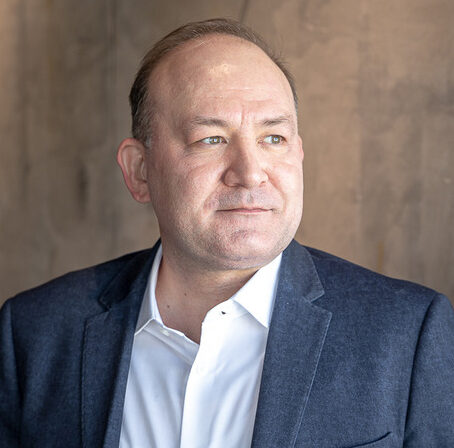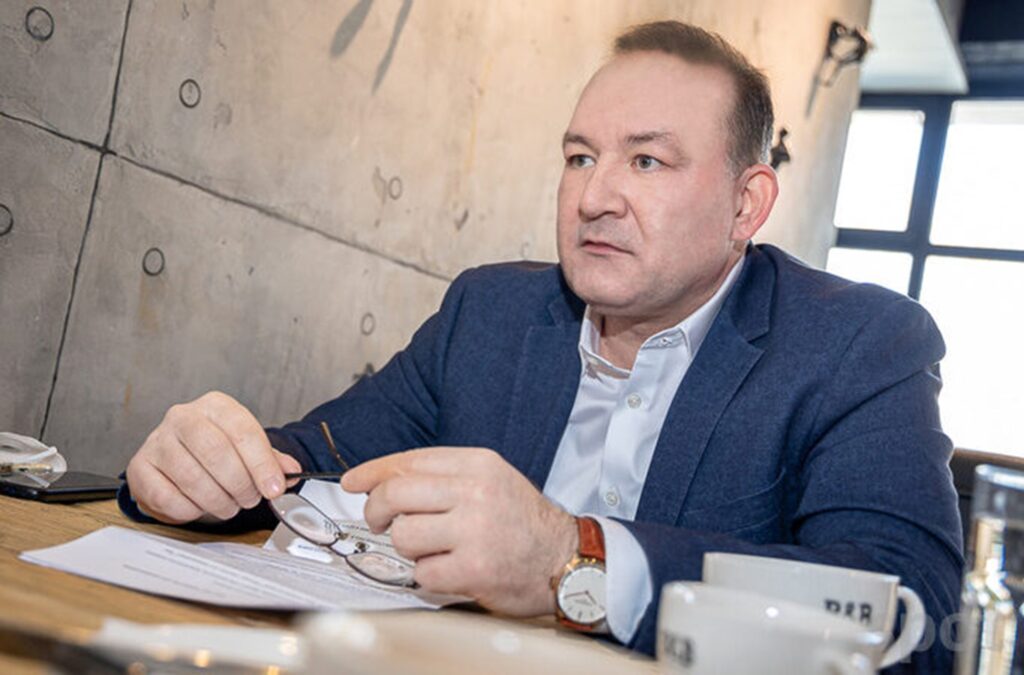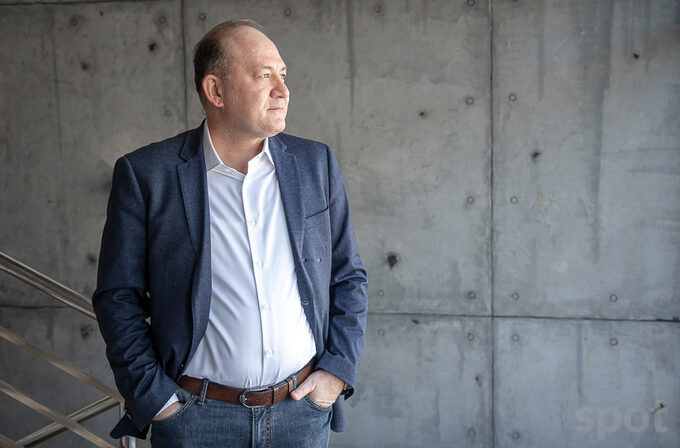Dilshodbek Turakhodjaev
Bioton Business Consultant

Every year, proper nutrition and the intake of biologically active supplements are gaining popularity. A huge number of people suffer from a lack of vitamins and minerals necessary for the body — most often it is an elementary deficiency of iron or vitamin B12. Unfortunately, it is increasingly difficult for modern people to obtain important nutrients from food.
How we came to produce dietary supplements
The enterprise was launched in 2010. The project founders Rinat Sayfulin, who devoted almost 25 years of his life to the production of food additives, and his partners (a group of investors) invited my father, Marat Turakhodzhaev, with 40 years of work experience at the Institute of Chemistry of Plant Substances, as a companion.
The availability of free assets in the form of premises helped. For example, in the building where we now work, we used to produce molasses, and we had developments in the technological part.
This direction was chosen for a reason — today there are practically no competitors in the universal extraction sector, unless you count specialized companies engaged in licorice extraction or rosehip extraction, but they have no other products.
It is quite economical and profitable to export substances because of their weight. For example, you can easily send 100-200 kg by airplane, and from 5 kg of our substance about 2-3 thousand packages are produced and manufactured.
We work with one distribution company Rogneda UC. All GOSTs and licenses belong to us, and the brand under which we work belongs to the company. They have agents who cooperate with pharmacy chains and retail outlets, which makes it convenient to sell the product in the regions. We also supply other types of substances like raw materials to Nika Pharm, which produces drugs under its own brand.
There is no point in investing in promotion in the regions, the word of mouth effect works well there — it is better than any advertising. Plus, any foreign-made dietary supplement or medical product always costs 2-3 times more, and for people living in the regions, this is a rather important criterion.
What you need to remember when you start a job
Quality control, compliance with sanitary norms and standards is very important. The room is equipped according to the standards of the Ministry of Health and the norms issued by the pharmaceutical committee, there are also ISO and GMP standards. The equipment will be tested for almost everything from magnitude and magnetism to radiation emissions.
The first thing that will catch up with you is the almost complete absence of a culture of using supplements. People here are not engaged in prevention, and often start treatment when vitamins can no longer help, so the share of synthetic drugs exceeds several times. Abroad, their use has long ceased to be perceived as a miracle remedy for all diseases, and now the population of European countries considers dietary supplements as a source of microelements, vitamins and a preparation for general strengthening of immunity.
Today, this sphere is turning into a multi-billion dollar industry worldwide. According to research by our partners, almost 90% of the Japanese population includes dietary supplements in their regular diet. Their use is also growing every year in Europe and the USA.
People go into this business who are interested in it. So far we cannot pay high salaries due to reinvestment in new equipment, so sometimes good specialists leave us.
A certain difficulty is the process of active training of new personnel. Every year, the generation with high qualifications in the post-Soviet space is shrinking, so we train young specialists locally — in the process of work.
One of our initial mistakes was strategy. Initially, we launched our own brand and began cooperation with several distribution companies. A little later we realized that it was all quite routine and had a number of nuances and complexities, so we decided to change strategy.
So we started working with large pharmaceutical manufacturers, such as Nika Pharm, which already had partnerships with the network of Oxymed pharmacies across the country.

Biotechnology in figures
The amount invested was about $70,000. To a large extent we saved on the fact that the investors provided the premises and helped with the purchase of equipment. We ordered it from China.
There is a nuance: if you decide to buy a complete production line, it may cost $150-200 thousand. We came to the opinion that it can be done separately, as some equipment is consumable and quickly wears out. After all, there is no point in buying it of high quality and for a lot of money — it requires constant replacement.
This way we were able to save money (on the service of layout and assembly of the whole line) and meet $50 thousand.
The payback period is from two years. It took us about three years to reach operational break-even, but we have not yet achieved a return on investment, as we have to constantly reinvest.
At the very beginning we were producing and supplying about 20 kg of substance per year, before the pandemic our supply was almost 40 kg, and this year we expect to raise the level to more than 50 kg.
Sales peaked in 2018. The turnover reached $500 thousand per year — of which 40% of all sales were alcohol tinctures and 60%: dietary supplements and substances.
During the quarantine there was a significant slump and turnover fell to $200 thousand. However, in the fall we were able to get with the first pilot batch to the Russian market for the first time. Our companions mainly work with a network of sports and fitness nutrition stores in Moscow and St. Petersburg. Their production itself is set up in the Krasnodar region.
Our drugs are most actively sold in the Fergana Valley, as most of the population there is engaged in physical labor.
The problems we faced
In almost all countries, if your plant or its root is not recognized by the Ministry of Health as a medicinal plant, you have the right to make a food additive from it. In our country, however, things are different in this matter. We also have the right to make a food supplement, but in a dose equal to half of the dose approved for a medicine.
Actually, what the problem is. Uzbekistan has recently adopted a simplified system of registration of foreign medicines. The following procedure has been approved for Turkestan perennial: 50 mg in 1 capsule is considered a medicinal standard.
It turns out that we have to produce in a dose equal to half — 25 mg, when at the same time abroad vestiburnum is not considered a medicinal plant and it is produced and consumed in a dose of 100 mg in 1 capsule.
For example, we receive an order from a foreign distributor from a Customs Union member country to produce 100 mg in 1 capsule with a ST-1 certificate, but our state standards do not allow us to do this.
So, instead of us now earning up to 40% margin per pack on the finished product and increasing our total export revenue, we have to ship only processed raw material and earn only 10-15% on it on average.
Among other things, along with the finished substance, we also share all our developments and the composition of dietary supplements and the technology of their production, which is absolutely unprofitable. It is also a shame that our products and scientific developments are released and conquer niches under a foreign brand.
It was also quite difficult for us to start working with Japanese partners, as Uzbekistan is not a member of the Nagoya Protocol on the Protection of Natural Biodiversity.
Another of the problems has been the fact that we have recently had our gas cut off. The switch to electricity affects the price of the product. Regional consumers, in turn, react acutely to the increased cost.
Export entry
In 2017, we were able to enter the English market through a direct offer. Our partners there encapsulate the product and package it under their brand. We sent the first trial batch free of charge.
This was done in order to identify demand and understand how to interact with the consumer in terms of product promotion. Six months later, we noticed an increase in sales, followed by an active sales drive.
Based on our experience in England, we realized that about 5 thousand loyal customers would be enough to pay off.

A year and a half ago, we were contacted by a Japanese company. We sent them our drug and today it has passed the first preliminary studies — they tested it on elderly people.
If we manage to sign an agreement and take a worthy place in the Japanese market, we will be the first Uzbek company to do so. With Japanese representatives, as with other foreign partners, we went through a number of bureaucratic difficulties. Our negotiations and documentation issues took almost 18 months.
Plans
Before the start of the pandemic, preliminary talks were held with a Japanese regional bank to allocate the first grant for a pharmaceutical institute in Osaka city, where biotechnologist Professor Makio Shibano works. Together with him, we intend to realize the idea of launching the first ever project to study Uzbek medicinal herbs.
To start with, we chose 10 plants about which there is no information in Japan. But unfortunately, due to the pandemic and quarantine in both countries, the project had to be frozen for a while.
In the near future, we are waiting for Uzbekistan to join the Nagoya Protocol, which will open up new opportunities and markets for us, as well as help to bring the country’s pharmaceutical market to a new international level.
We are planning to launch three more projects — preparations for anti-aging due to age-related changes and for people suffering from or predisposed to diabetes mellitus. We also expect our products to appear on the markets of the Transcaucasus, the Baltics, Turkey and Eastern Europe in the near future.
We are ready to cooperate with interested companies.
